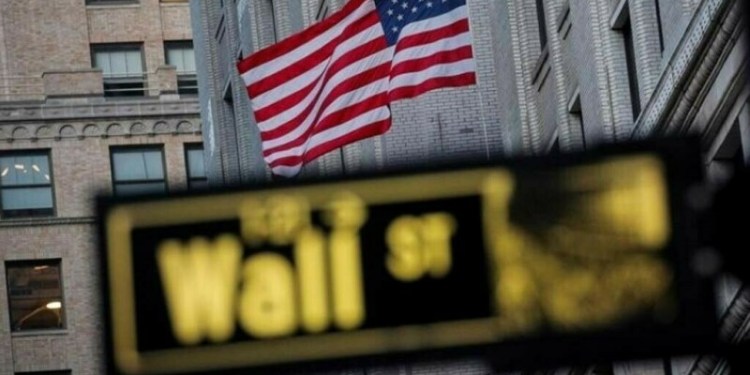 By Yium Tavarolit
By Yium Tavarolit
The Movements of Global Stocks, Finance and Energy
Global concerns about the U.S. fiscal cliff, austerity protests across Western Europe, a prolonged negotiation between the Euro-zone governments and the International Monetary Fund (IMF) over the financial aid for Greece, and a slowdown in China’s economic growth still dampened investors’ confidence across the globe during the week.
In Asia, major Asian stock markets were mixed on Friday. Japan’s Nikkei 225 Index rose aggressively during the week and settled higher than its closure on an earlier Friday at 9,024.72. In contrast, the Shanghai Composite Index fell consecutively from an earlier week to end at 2,014.72 on Friday. In the meantime, Hong Kong Hang Seng Index and the Australia’s S&P ASX 200 also finished lower at 21,159.01 and at 4,336.848.
The downtrend in European stock markets still continued from an earlier week to Friday, and it led the STOXX Europe 600 Index to close lower at 262.86. At the same time, the U.K.’s FTSE 100 Index finished at 5,605.59. The German DAX 30 Index dropped to 6,950.53, and the France’s CAC 40 Index edged lower at 3,341.52.
Despite a marginal rebound on Wall Street on Friday compared with on Thursday, its downtrend still continued from an earlier week to Friday like the European stock markets as most investors still awaited clearer cues from newly re-elected U.S. President Barak Obama, the European debt development, and the transfer of political power in China. The Dow Jones Industrial Average closed higher at 12,588.31 on Friday. The Standard & Poor’s 500-stock Index up to 1,359.88 while the tech-oriented Nasdaq Composite gained higher at 2,853.13.
The euro and Swiss Franc stayed rangbound against the dollar throughout the week as investors were still unclear about the U.S. fiscal cliff, and they sought haven assets instead of holding lots of dollars in hands. On Friday in New York, the dollar was at around EUR0.7848 and at around CHF0.9450. However, the Japanese yen weakened significantly against the dollar at around JPY81.26 because forex traders anticipated that a victory for Japan’s Liberal Democratic Party in the upcoming elections could result in more aggressive monetary easing.
On the energy front, the continued fight between Israel and Hamas dominated and outweighed other relevant factors that extended rises in crude oil futures until Friday whereas the dollar stayed rangebound against its rival currencies. Light, sweet crude oil for December delivery, which expired on Friday, climbed $1.22 to settle at $86.67 a barrel on the New York Mercantile Exchange, the highest settlement since 6 November, According to Dow Jones and Bloomberg Newswires.
Rubber Markets
The sharp fall in the Japanese yen against the dollar from around 79.48 on Monday to 81.36 on Friday and the rise of crude oil futures on Nymex from $85.57 a barrel on Monday to $86.67 a barrel on Friday were the major factors, which pushed up rubber futures and physical rubber prices in Asia to close higher on Friday compared with an earlier Friday as shown in the table below amid weak global stock markets and gold futures.
|
Description |
16-Nov-12 |
9-Nov-12 |
Change |
Unit |
|
IRCo’s DCP |
286.52 |
285.40 |
1.12 |
US cents/kg |
|
TOCOM/RSS3 * |
|
|
|
|
|
– Nov. |
236.10 |
235.90 |
0.20 |
Yen/kg |
|
– Apr. |
248.40 |
246.40 |
2.00 |
Yen/kg |
|
– Volume |
6,062 |
16,007 |
-9,945 |
Lots |
|
SHFE/RSS3 ** |
24,215 |
24,035 |
180 |
Yuan/ton |
|
AFET/RSS3 |
|
|
|
|
|
– Dec. |
91.00 |
88.80 |
2.20 |
THB/kg |
|
– Jun. |
93.75 |
92.75 |
1.00 |
THB/kg |
|
– Volume |
156 |
205 |
-49 |
Lots |
|
SMR20 *** |
289.00 |
289.00 |
– |
US cents/kg |
|
SIR20 *** |
280.00 |
278.00 |
2.00 |
US cents/kg |
|
RRIT |
|
|
|
|
|
– RSS3 |
92.15 |
91.70 |
0.45 |
THB/kg |
|
– STR20 |
86.20 |
86.75 |
-0.55 |
THB/kg |
|
– USS3 |
78.55 |
78.40 |
0.15 |
THB/kg |
|
– Conc. Latex |
58.10 |
57.60 |
0.50 |
THB/kg |
|
– Field Latex |
75.00 |
72.00 |
3.00 |
THB/kg |
|
Notes: * The day session ** The most active month is May 2013 *** Offers, fob prices for Dec. & Jan. deliveries |
||||
IRCo’s technical MACD and Signal Line improved slightly in negative territory on Friday compared with an earlier Friday, but its RSI fell from 36.66% on an earlier Friday to 32.92% on Friday. These indicate that short is still more likely in the coming week if there are no positive factors boosting global stock markets and restoring investors’ confidence.
Nonetheless, a gap between IRCo’s DCP and its 14-days moving average is narrowing and its DCP tends to cross over to stay above its 14-days moving average in the coming days, and It is expected that global investors’ confidence should improve gradually in the coming weeks after Mr. Barack Obama, who believes in dovish foreign policy, was re-elected on 6 November. And the smooth transfer of political power in China on Wednesday has shown a hopeful sign that new Chinese leaders will continue to stimulate the current economic slowdown in China. Moreover, we have to keep a close watch on the fight between Israel and Hamas that it might shake crude oil futures to skyrocket.
Lastly, please bear in mind that natural rubber (NR) supply in Thailand, Malaysia, and northern Sumatra in Indonesia is going to start decreasing in the next two months as the dry wintering season is going to come as usual. And a target of 300,000 tons NR export cut back by Thailand, Indonesia, and Malaysia under the Agreed Export Tonnage Scheme (AETS) remains effective until March next year. These might be a reason why China started stockpiling NR after its January – September NR imports rose 9.64% to 1.579 million tons year on year, according to Reuters Newswires on Friday.
Source: IRCo



























